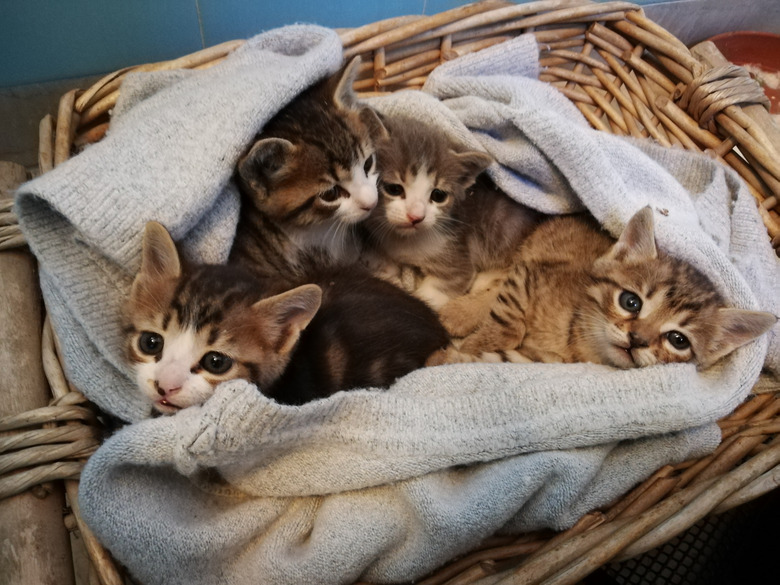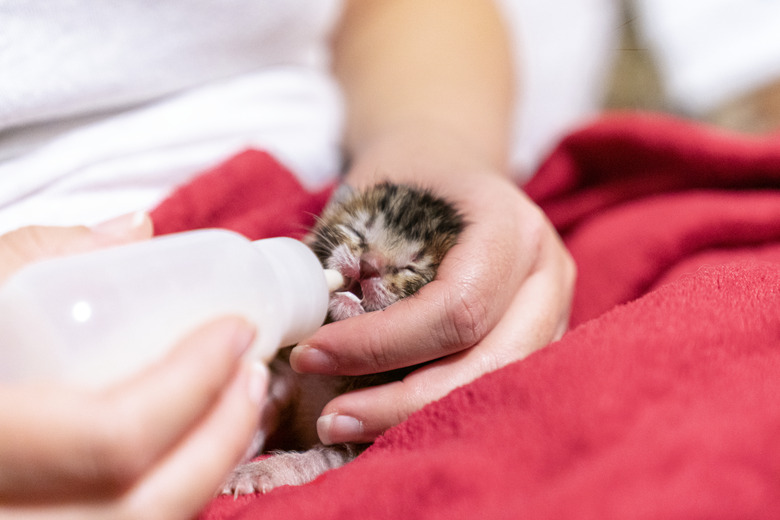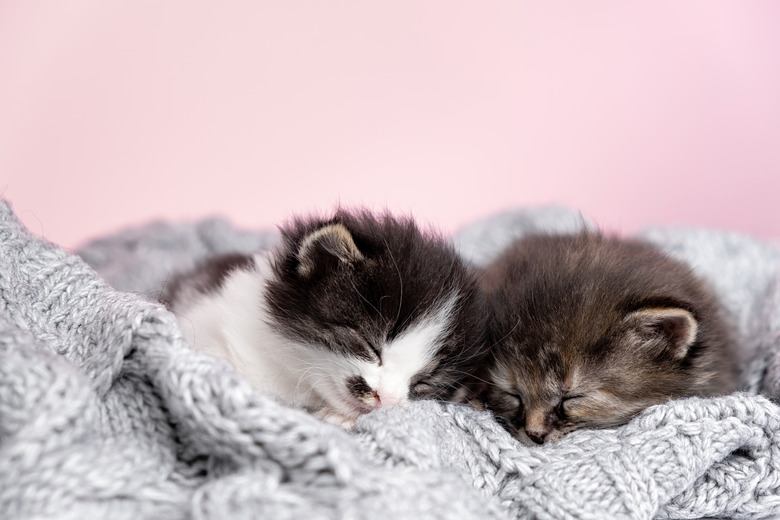Homemade Kitten Milk Replacer: A Vet Explains Kitten Formula Recipes For An Emergency
Having a newborn kitten in your home is often an exciting event. However, sometimes things go wrong, and the kittens may be orphaned or rejected by their mother. Whether you need to care for kittens your own cat gave birth to or you happen upon a litter of orphaned kittens, you may suddenly find that you need kitten formula. Orphaned kittens should always be fed a commercial replacement formula. Homemade kitten formula should only be used as a last resort and if there are no other options. Homemade cat milk is not a healthy substitute for very long.
Try to find store-bought formula for kittens
Try to find store-bought formula for kittens
If you suddenly find yourself needing to feed kittens late at night or on a weekend, make every effort to acquire kitten milk replacer. If it's a weekend, many pet stores and veterinary clinics may have a supply of milk replacement formula. If it's late at night, a veterinary emergency clinic may have some on hand.
The following recipes are intended as emergency kitten replacement formulas. They use ingredients that you may already have in your kitchen and will help you get by until you can purchase kitten formula. Keep in mind that these formulas are intended as a stop-gap for kitten care until commercial formula can be acquired. Continued use of homemade formula will harm kittens.
Kitten formula recipes
Kitten formula recipes
You can make a simple formula in a number of different ways. For the first recipe, mix together one can of evaporated milk with one egg yolk. Make sure to use unsweetened evaporated milk. Sweetened milk can harm the kitten. This formula should stay fresh in the refrigerator for one to two days and can be used for multiple feedings.
For the second recipe, blend together 8 ounces of cow's milk, two egg yolks, and 1 teaspoon of salad oil. You can also add one drop of liquid pediatric vitamins if you have them. This formula should also stay fresh in the refrigerator for one to two days.
Combining goat's milk, Karo syrup, yogurt, egg yolks, and gelatin will yield more nutrition. Combine a quart of goat's milk with a teaspoon of Karo syrup, a tablespoon of yogurt, one egg yolk, and unflavored gelatin in a saucepan. Goat's milk yogurt works best for this recipe but can be substituted with nonfat plain yogurt. This recipe can be stable in the refrigerator for up to a week. Even though this is the most nutritionally complete of the homemade formulas, it is still not safe to use more than absolutely necessary.
Store all recipes in a tightly sealed jar in the fridge. The mixture should be just above room temperature when you feed it to the kitten. Always make sure to test the mixture on your hand before feeding it to the kitten.
Estimated feeding amount with homemade kitten milk is based on the body weight and the kitten's age. With young kittens, always keep in contact with your veterinarian.
Transitioning to manufactured formula for kittens
Transitioning to manufactured formula for kittens
The above homemade kitten formula recipes are designed only to be used in an emergency. They do not substitute for a mother cat or for cat food formulated by experts. They do not contain the complete nutrition that kittens need long term or the nutrition they would get from a mother's milk or a milk replacement formula. Commercially available formulas and milk replacers are specially designed to give kittens the right nutritional balance that their growing bodies need.
You can purchase commercially available milk replacers from a variety of sources, including local pet stores, online retailers, and some larger feed stores. Your veterinarian may also have these products in stock and may be able to give you a supply until you can go to a store or place an order online.
Always keep prepared formula in the fridge when you're not actively feeding it. It will go bad quickly if not refrigerated.
How to bottle-feed a kitten
How to bottle-feed a kitten
Make sure the kitten is warm before feeding time. Feel their ears and paw pads. If they feel cold, wrap them in a blanket and hold them close to your body for about 20 minutes or until they warm up. If a kitten eats while they are cold, food may stagnate in their digestive tract.
Warm the formula by placing the container in a bowl of hot water. It should feel slightly warmer than room temperature. You can test the heat level by shaking some formula onto your own wrist.
Feed the kitten every three hours for the first one to two weeks using a bottle and nipple designed for feeding kittens purchased from a pet store or veterinary clinic. Don't try to use a human baby bottle. Pierce or cut the nipple before feeding to a size that allows formula to slowly drip out of it when you turn it upside down. It should not flow out quickly — if it does, the hole is likely too big. Eye droppers and syringes do not allow a kitten to suckle and should not be used for regular feedings.
Kittens cannot eliminate on their own. To prevent constipation, after feeding the kitten, stimulate elimination by gently wiping the kitten's anal and urinary openings using a paper towel or washcloth dipped in warm water. The kitten should immediately eliminate. Wipe the area dry. Continue this process after feeding until the tiny baby eliminates on their own.
When should your kitten see the veterinarian?
When should your kitten see the veterinarian?
If your kitten develops diarrhea, seems lethargic, or loses their appetite, call your veterinarian immediately. Diarrhea can quickly dehydrate a kitten, and any sort of illness can progress quickly. Remember that even kittens who seem to be doing well should see a veterinarian for their initial checkup to assess for any issues, congenital abnormalities, or signs of illness.
The bottom line
The bottom line
Feeding homemade kitten formula can hurt the kitten and should be avoided at all costs. If you find yourself strapped for kitten food, get in touch with local pet stores or an emergency veterinary medicine clinic. If all else fails, you can feed your kitten homemade formula only as long as is needed before you can get kitten replacement formula. Remember to weigh your kitten regularly to make sure they are gaining weight every week.


